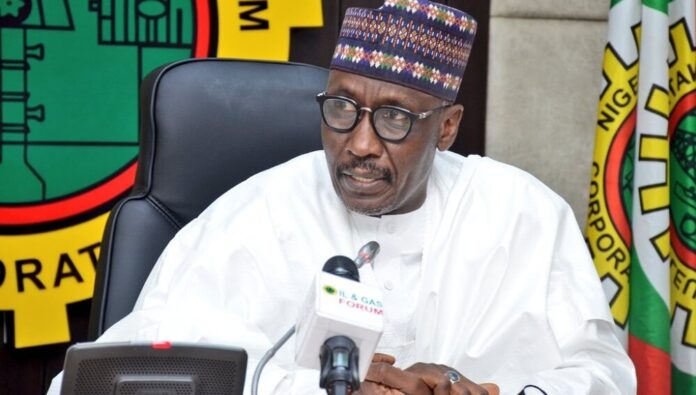From FG
The Nigerian National Petroleum Company Limited (NNPC) is seeking a refund of N4.71 trillion from the Federal Government to cover outstanding debts incurred for importing Premium Motor Spirit (PMS), commonly known as petrol.
The demand is based on exchange rate differentials and joint venture taxes related to petrol imports between August 2023 and June 2024, according to disclosures made by the Minister of Finance and Coordinating Minister of the Economy, Wale Edun during the June meeting of the Federation Accounts Allocation Committee (FAAC).
The exchange rate differential, a key component of the NNPC’s claim, refers to the financial impact of fluctuations in the value of the naira against the U.S. dollar during the period in question.
The government’s intervention to cover these discrepancies highlights the ongoing complexities surrounding Nigeria’s fuel importation system, especially in light of President Bola Tinubu’s May 2023 declaration that the fuel subsidy had been removed—a claim that has been challenged by various international bodies, including the International Monetary Fund (IMF) and the World Bank.
The NNPC’s request for a refund underscores the financial strain imposed by exchange rate volatility on the company’s operations.
Despite the government’s stance that subsidies have been abolished, the NNPC’s request effectively signals that the government continues to bear the cost of fuel imports, contrary to public declarations.
The company had initially received approval to utilize a “Weighted Average Rate” from October 2023 to March 2024 to stabilize fuel prices, but the subsequent devaluation of the naira pushed the exchange rate from N650 to N1,200 per U.S. dollar, thereby inflating the cost of imports.
The NNPC’s financial claims began with an outstanding balance of N1.18 trillion in August 2023 and escalated month-by-month, reaching N4.71 trillion by June 2024.
This staggering increase has raised concerns among state finance commissioners, including Akwa Ibom’s Linus Nkan, who questioned the legitimacy of the N2.6 trillion exchange rate differential recorded against the Federation Account.
Ongoing Financial Scrutiny and Accountability
During the FAAC meeting, the NNPC’s General Manager, Joshua Danjuma, confirmed the increased cost of PMS imports due to the rising exchange rate, which necessitated the company’s claim. He emphasized that the additional costs have severely impacted the NNPC’s financial obligations.
The situation is further complicated by revelations from Mohammed Bello, Chairman of the Revenue Mobilisation Allocation and Fiscal Commission, who noted that the NNPC was granted presidential approval to use a fixed exchange rate of N524.99 per U.S. dollar for imports from August 2023 to March 2024.
However, the actual exchange rate used in June 2024 was N1,200, leading to a substantial claim against the government.
As this issue unfolds, Niger State’s Commissioner for Finance, Lawal Maikano, and Kaduna State’s HCF, Shizzer Bada, voiced their concerns about the overall revenue shortfalls and the growing backlog of arrears owed by the NNPC.
These shortfalls have led to only 50% of the budgeted revenue being met, prompting calls for a realistic adjustment to FAAC’s revenue projections.
Expert Opinions and Industry Implications
The NNPC’s demand for a refund has also sparked debate among industry experts. an energy scholar, Wumi Iledare questioned the rationale behind the NNPC’s claim, arguing that as a revenue-generating entity, the NNPC should be remitting royalties, taxes, and other obligations to the government, rather than seeking a refund.
Iledare suggested that the situation may be a case of “under-recovery,” where the NNPC spent foreign currency to import fuel and is now seeking compensation from the government.
This development reflects the broader challenges facing Nigeria’s oil and gas sector, particularly in aligning the NNPC’s new commercial status with the government’s fiscal policies.
As the government and the NNPC continue to navigate these financial intricacies, the impact on Nigeria’s economy and energy security remains a critical concern.

